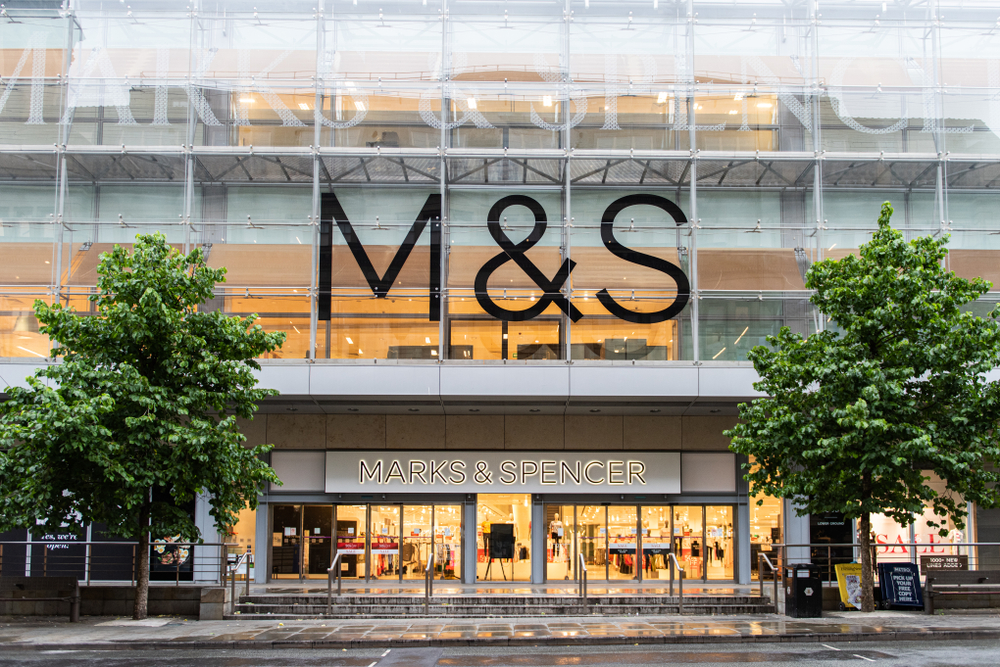Aldi at 35: How the German discounter has disrupted the UK grocery sector
German discounter Aldi is marking its 35th anniversary in the UK this year after it opened its first store in Stechford, Birmingham back in 1990. The single supermarket, which sold just 600 basic grocery lines at the time, has since grown to more than 1,050 stores nationwide and overtook Morrisons to become the UK’s fourth...

German discounter Aldi is marking its 35th anniversary in the UK this year after it opened its first store in Stechford, Birmingham back in 1990.
The single supermarket, which sold just 600 basic grocery lines at the time, has since grown to more than 1,050 stores nationwide and overtook Morrisons to become the UK’s fourth biggest supermarket in September 2022.
It is also catching up quickly to rival Asda and overtook its closest competitor on food and drink sales for the first time last month, according to unpublished data by Kantar.
A lot has changed since the discount supermarket first entered the UK and its iconic Kevin the Carrot character and Specialbuys had yet to be created. Retail Gazette takes a look at how Aldi has disrupted the UK’s grocery sector since the 90s.
The introduction of Specialbuys

Aldi’s Specialbuys – or its famous “middle aisle” – form a major part of the supermarket’s brand identity today, but the limited-time products were not originally part of its 90s launch.
The discounter initially had little emphasis on its non-food products and solely focussed on offering low-priced and value groceries.
Specialbuys appeared for the first time during the 2000s, bringing its selection of seasonal and limited-time products to its shops.
Capitalising on opportunistic buying and a sense of urgency to snap up limited edition products, the items are now released every Thursday and Sunday and significantly drive Aldi’s sales.
The products on offer have also evolved since their introduction. Having started with garden tools and Christmas decorations, the range has now grown to house home goods, clothing, electronics and more.
The arrival of Kevin the Carrot

Aldi’s Kevin the Carrot character has become a household name – but it wasn’t until 2016 that he made his first appearance in the grocer’s Christmas advert.
The character’s quest to meet Santa that year contributed to a 15.1% increase in sales and helped the supermarket gain an additional one million new shoppers, Marketing Week reported.
Created by advertising agency McCann Manchester, Kevin the Carrot has featured in every Christmas campaign since.
Aldi has even released limited-edition versions of the character as a soft toy in stores to cater to the figure’s large fanbase.
In 2022, Aldi’s website had over 70,000 shoppers queuing online to get their hands on the Kevin the Carrot toys and were completely sold out of several versions of the character by 10am.
Simple store layouts

During Aldi’s early days, its supermarkets were designed with “simplicity and efficiency in mind”, designed to create a convenient shopping experience.
Although the business still has simplicity in mind, it has since changed up its store layout in a bid to enhance the customer journey and appeal to a broader range of customers.
Its stores now feature wider and brighter aisles, along with clearer signage and a wider variety of food and non-food products available.
In 2019, The Guardian reported that Aldi’s total number of products, or stock keeping units (SKUs), had tripled since the early 90s to almost 2,000, with the increased range drawing in a wider range of shoppers.
Additionally, Aldi has experimented with different types of store formats. For example, in 2019 it launched its first “local” concept store in Balham, South London, as part of a trial, in efforts to appeal to a different demographic of shoppers. The supermarket also has a Shop & Go store in Greenwich, London.
Investment into pay and people

Aldi first entered the UK with just one store, and has significantly boosted its number of sites and workers since then as it has grown. The supermarket now employs more than 45,000 staff members.
In February, it set out to create 1,600 more jobs in 2025, as it pushed ahead with its store expansion across the UK.
The retailer has also made significant investments into its staff pay to encourage staff members to work for them, and has previously vowed to “never be beaten on pay” by any other supermarket.
It most recently boosted its pay in February, as it sought to cement its position as the “best-paying” supermarket.
The grocer, which was already the highest paying supermarket in the UK, raised its hourly wage rates for store assistants once again to £12.75 nationally and £14.05 within the M25 from 1 March.
Additionally, Aldi entices staff members to work for them by offering its employees paid breaks, making it the only UK supermarket to do so. According to the retailer’s website, these add up to more than an additional £1,000 per year.
Furthermore, the grocery giant aims to attract workers by investing in its staff career progression. For example, in February it set out to create 500 new apprenticeship roles over the year.
Aldi UK training and development director Lisa Murphy explained at the time: “Through the scheme, candidates will gain valuable transferable skills, become experts in their roles, and receive industry-leading pay at one of the UK’s top grocery retailers.”
As Aldi pushes to open a further 30 new stores in 2025, as part of its long-term target to hit 1,500 UK sites, its journey from a single store in Birmingham to one of UK grocery’s biggest players shows no signs of slowing down.
Click here to sign up to Retail Gazette‘s free daily email newsletter










































































































































































